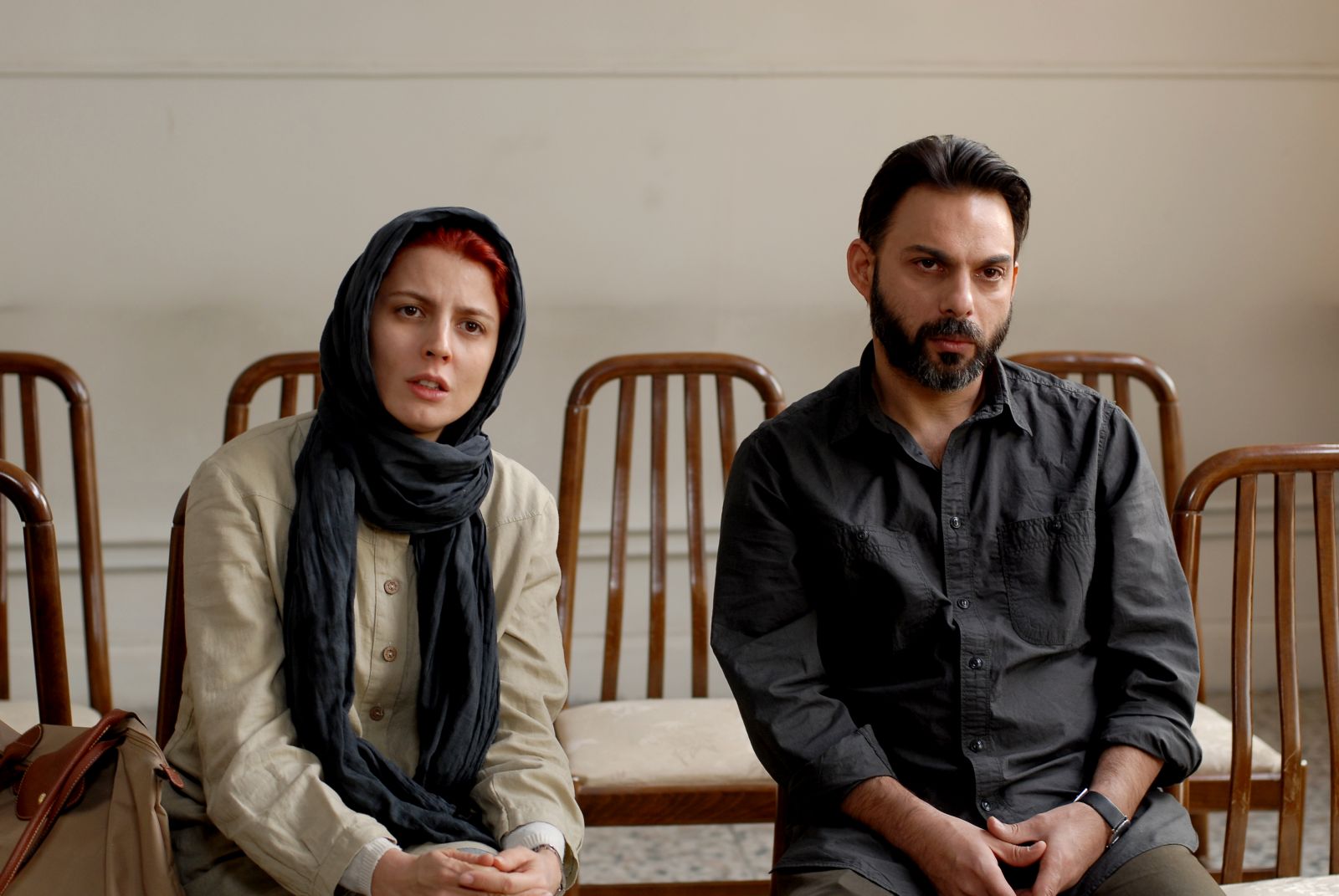A Separation is a wonderful combination of genres rolled into one: courtroom drama, family conflict, mystery, and a dysfunctional institution story. Director Asghar Farhadi sets up a wonderful scenario that unravels little by little, thus building tension with each new reveal and creating varying levels of superiority for each of the leads. The dynamics of the adults do a great job of keeping the children’s story in the background, adding extra poignance to the added complications in their simple lives. By the end of A Separation, I felt as worn out and conflicted as all of the characters in the story. Forget Kramer vs. Kramer; A Separation takes that core story and adds a more realistic story to it.
Simin (Leila Hatami) and Nader (Peyman Moadi) are seeking a divorce because Simin wants to leave Iran to find a better life for her pre-teen daughter Termeh (Sarina Farhadi, the director’s daughter). Nader is not willing to give up his daughter and leave the country because he has to care for his senile father; however, he would consider granting his wife a divorce if he lets her daughter stay in the country. Obviously, they have hit a stalemate. The judge sides with Nader, and Simin leaves home for her trial separation, which causes Nader to hire someone to look for his dad. He uses Razieh (Sareh Bayat) at first, but Razieh’s commute with her young daughter is too long and the hours too tiresome because she is also pregnant. She suggests to Nader her husband, Hodjat (Shahab Hosseini), but due to money issues, he cannot attend at first and Razieh fills in for him.
One day, Nader finds his father left tied to his bed, his oxygen removed from his face. After Nader revives him, Razieh and her daughter return; Nader, obviously angry, accuses the woman of stealing and negligence. He fires her, but she comes back to argue. Frustrated, Nader shoves her and she falls on some stairs. Nader finds out later that Razieh suffers a miscarriage, and Hodjat files a claim in court that accuses Nader of murder.
The setup is very lengthy, almost an hour. Without it though, the story would lose its necessary complications. The intro is not only important in establishing characters and family dynamics, it also sets up a situation where every adult is to blame for the miscarriage during the fight in court: Nader pushed Razieh, Razieh tied up Nader’s father alone to leave work for an unexplained reason, Hodjat’s money troubles caused his wife to cover for him, and Simin’s separation caused the housekeeper problem in the first place. As a result, it is hard for the audience to choose sides, and provides a layer of ambiguity to how the court case will be resolved as there is no clear cut victim. The story stays fresh too as every new scene leads to another reveal in the case that shifts the character dynamics and where the power lies between the involved parties.
One of the underappreciated aspects of the story is the painting of modern Iran. It is mostly seen as a country in transition: where old habits like religion and female subervience are being challenged by strong females and democracy. As a result, religion and government are not seen as the enemy: habitual thought and inflexibility are. Simin’s divorce, in the eyes of the judge, does not have enough cause for the judge to grant it to her. Razieh is a devout Muslim, and in Iran swearing on the Koran and lying is a much more serious offense than lying on the Bible in the US as it carries more eternal consequences.
A Separation does a great job hiding its main story though the compelling court case. At its center, A Separation is about Termeh (and to a lesser extent Razieh and Hodjat’s daughter), the 11 year old daughter of Simin and Nader. She is forced to grow up very quickly because of the situation thrust upon her. The adults keep insisting what they are doing is in the best interests for their daughter; however, she is forced into the middle of both the separation and the court case. As the story evolves she is forced to make more decisions, usually with increasing repercussions for her parents. By the time the story reaches its end, she is forced to make the biggest choice of her life, which is a few weeks from the start of the story. Each decision weighs on poor Termeh, showing the consequences of the actions of each adult acting in the “best interests” of their children can forget to consider the child in the first place.
A Separation is ultimately a very sad story. However, it is also a brilliant tale of how actions, sometimes decided without your involvement, can have devastating consequences on those you love. Even though I was already wary of separations and their effect on kids, A Separation confirmed my thoughts. If any parents are reading this and considering a separation, please watch this movie and know what you might be getting yourself into.

